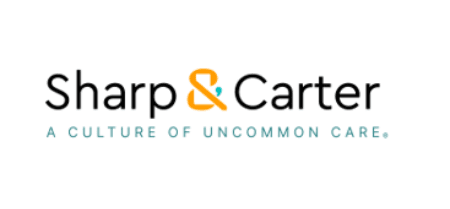Futureproof: People First in the Era of Artificial Intelligence
In recent years, the way we ‘go to work’ has transformed in a way that has redefined the very concept of work.
While we can now log in from virtually anywhere – whether from our home offices, living rooms, kitchens, or even hammocks – the evolution of remote work technology and the blurring of boundaries between home and office have shifted work-life balance perspectives and priorities.
Technological advancement like Artificial Intelligence (AI) has also reshaped the very nature of what we do in our day-to-day, as well as leadership, strategy and workplace culture.
AI can handle the heavy lifting, but we add the human touch. While AI has revolutionised how we work, it’s important to recognise that human traits like empathy, passion, patience, and creativity remain irreplaceable and cannot be replicated by technology.
While it’s a common trap for workplaces to focus solely on the technology, the key to success is not just adopting AI but empowering the people behind it.
At Sharp & Carter, we know that while technology can enhance our work, the people are at the heart of any thriving and successful organisation. Here’s why:
"Artificial Intelligence will most likely drive efficiencies in human requirements but the most successful organisations will focus on transitioning human activities from the mundane, routine tasks into value adding, growth focused activities. Therefore your people leadership skills and the recognition that this change will require a budget for human training and upskilling is critical.” - Stephen Carter, Sharp & Carter Founder |  |
All The Power to AI?
LinkedIn have published an Q4 2024 Report, outlining some global trends of AI in a changing world of work. Key outcomes discussed:
|  |
The Power of People in the AI Era
At Sharp & Carter, we know that welcoming AI as a part of our everyday work goes hand-in-hand with championing the full potential of our talent and workforce.
While talent and technology are shaping the future of work, the human part of this relationship remains irreplaceable.
Leadership: Challenges and Changes
Since the pandemic, talent leaders have faced challenges that can seem contradictory:
•Managing tensions between return to office and remote work
•Addressing hiring surges with staffing reductions
•Balancing the growing need for AI skillsets while nurturing human-centric soft skills.
These challenges reflect a greater fact:
While AI is a tool that can streamline our day-to-day work and unlock efficiencies, people remain the greatest asset. Organisations must stay agile to thrive.
AI and Agility: Future Trends of Work
LinkedIn’s recent Economic Graph report highlights key trends that reveal the interplay between AI and talent:
Internal Mobility is on the rise
In Australia, internal mobility has increased by 7% year-over-year, outpacing global growth.
Internal mobility (the movement of staff from one role to another within the organisation) allows companies to leverage existing talent cost-effectively, build skills, and provide growth opportunities without needing to hire externally. This demonstrates a shift toward organisations leveraging their existing workforce to address new challenges.Soft Skills are in demand
As AI takes over the routine and mundane, the demand for human-centric or soft skills is growing. Skills that rely on emotional intelligence, communication, leadership, creativity and empathy are uniquely human and are growing in importance.
In Australia and New Zealand, the top soft skills employers are seeking include: problem-solving, analytical thinking and team leadership.
These skills enable employees to evolve and innovate by harnessing qualities that technology alone cannot replicate.AI: An Opportunity
While 8 in 10 Australian executives see the potential of AI to improve productivity and creativity, most organisations are still in early stages of introduction. Businesses that upskill their staff with the skills to use AI effectively will gain a competitive edge.
People Are the Key to Overall AI Success
While AI is transforming the way we work, the people within the organisation remain those who will decide how it will effectively be used.
Leaders who focus on unlocking human potential alongside AI adoption will drive the best outcomes.
Here’s why:
AI Amplifies, it Doesn’t Replace:
AI can reduce time spent on repetitive and dull tasks, freeing us up for more strategic and creative work. However, we need to be actively thinking about how we implement technology as a tool. It requires human oversight to ensure that outputs are in line with the goals of the organisation.
Soft Skills Spur Organisational Agility:
Skills like collaboration, adaptability, and analytical problem-solving are critical, especially while the workforce continues to evolve. These uniquely human abilities allow organisations to remain innovative, resilient, and connected.
A Culture of Curiosity is Paramount:
For AI to succeed, organisations must maintain a culture of curiosity and ongoing learning. Employees skilled in utilising AI are not only more productive but are also more likely to develop complementary skills like emotional intelligence, design thinking, and creative ideations.
The Duty of Talent Leaders in the Era of AI
Talent leaders are uniquely positioned to guide organisations through this transformation. By aligning talent strategies with AI adoption, they can:
Enhance organisational agility through internal mobility.
Prioritise human skills alongside technical capabilities.
Embed a learning mindset into the company culture.
"AI will be one of the largest changes that organisations will have encountered in the past century. Navigating any successful organisational change is reliant upon organisational culture first and foremost. If your culture is poor, change (especially of this magnitude) is unlikely to be successfully embedded and accepted. As such in preparation for AI impacting your business you should be working on the cultural health of your organisation." - Stephen Carter, Sharp & Carter Founder |
Sharp & Carter: Ahead by Putting People First
AI offers vast opportunities, but only when combined with the potential of a skilled and engaged workforce. While we continue to unlock the potential of AI, organisations need to remember:
While Technology is the Tool, People are the Solution.
At Sharp & Carter, we’ve always championed a people-first approach—not just in recruitment and talent management, but also in shaping our internal culture.
Our Sharp & Carter mission: To be a catalyst for a new era of work – where organisations unlock potential through prioritising people above all else.
How is your organisation preparing for the future of work? Let’s start a conversation.
People-First is Future Fit
By prioritising soft skills and meaningful connections, we help businesses build teams that are technically talented as well as culturally aligned. This approach positions us as thought leaders and experts at building future-ready workforces.
By helping organisations find the right talent and supporting teams through changes, we know that success comes from putting people at the heart of every decision.
Connect with us and let us help you find the right people to drive your business forward.





.png)
.png)
